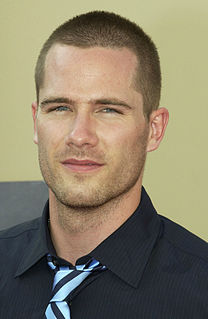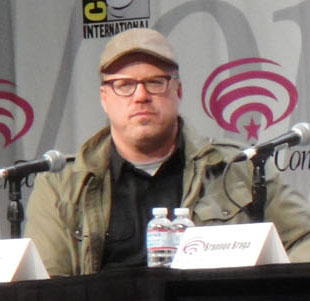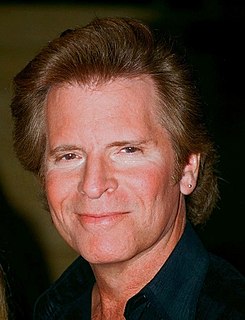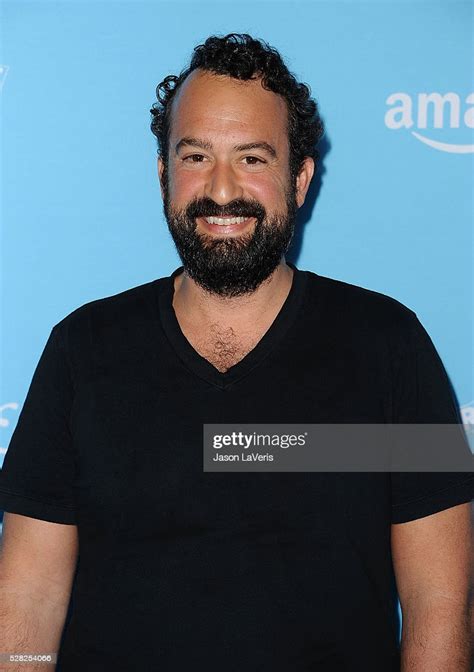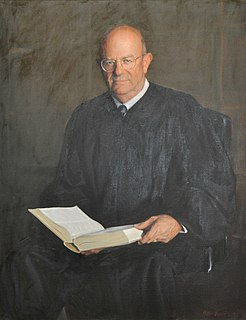A Quote by Luke Macfarlane
The thing about watching a show about the Iraq war, especially for an American audience, is that it reminds them they're responsible in some way.
Related Quotes
And one of the things that's interesting about how they're doing the show is that the audience almost knows more than the characters do in some of these scenes, and the extent of that is unique. So it's grown into a different show in a way. It's sort of grown into a different experience watching it.
With the Michael Moore movie, certain conservative talk show hosts call him un-American. Him and anybody else who says anything about the war... To question your country's policy, especially in a war that kills people, is definitely not un-American. It's probably the most patriotic thing you can do.
During the Gulf War, I remember two little third grade girls saying to me - after I read them some poems by writers in Iraq - 'You know, we never thought about there being children in Iraq before.' And I thought, 'Well those poems did their job, because now they'll think about everything a little bit differently.'
To be honest with you, I don't know how even to articulate it at this point, because sometimes the real difference in the seasons perhaps will come in the way the viewership responds and the audience responds. The thing about the show is - we realign a lot about it once our audience watches it. We learn things that we can't even anticipate.
It [The Esemblist] is also about the generation of audience members that are watching shows and listening to us at the same time; hopefully, in time, when they listen to our show and then go see a show, they'll realize even more what it takes to make a show, and they'll know even more about everybody on stage, rather than just people above the title of the show.
John Kerry presented his confidence and his convictions. It's not about confidence, it's about evidence. The Russians have completely opposite evidence that the missiles were thrown from an area where the rebels control. This reminds me - what Kerry said - about the big lie that Collin Powell said in front of the world on satellites about the WMD in Iraq before going to war. He said "this is our evidence."
I don't think about the audience, I don't think about what makes them happy, because there's no way for me to know. To try to think of what makes for entertainment is a very Japanese thing. The people who think like this are old-fashioned. They think of the audience as a mass, but in fact every person in the audience is different. So entertainment for everyone doesn't exist
The interesting thing to me is that somehow the future of movies will become a more social thing... I think that people will see them communally and will be talking about them as they're watching them, in a way, and immediately after watching them, and they'll all become the conversation. I think that's pretty interesting.
To me, you can't win. You can't win. There's a war in Iraq; there's no way that they're ending that. The war in Afghanistan is still going on. There's no way that's going to end anytime soon. You can complain about it, you can throw rocks at it, but you really have to come to the conclusion that this is a really twisted place sometimes and some stuff you're not going to win.
When you're watching a Bond movie, if there's a violent death, there's something about cleverly chosen twists, or what props are used, or some way that he's doing something that feels like an ironic twist, that feels like it gives the audience permission to enjoy watching it and to enjoy watching something that's otherwise just brutality.
